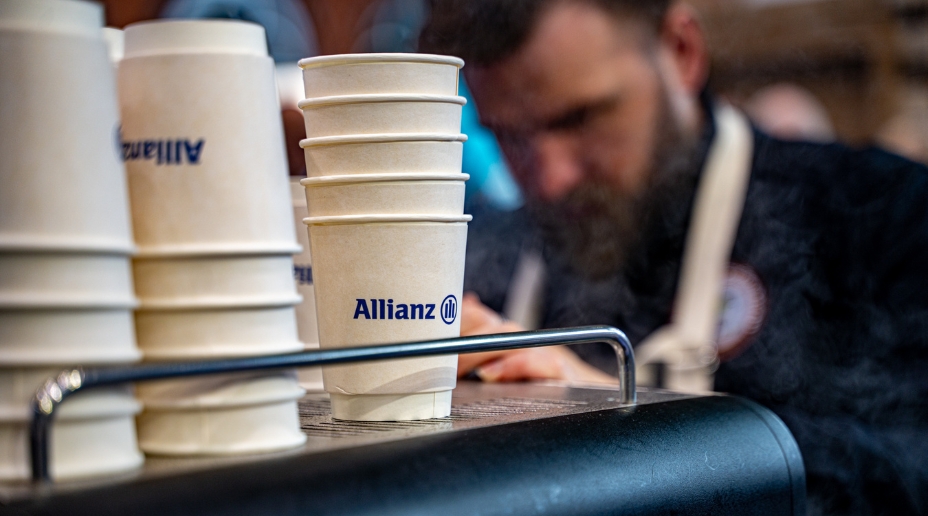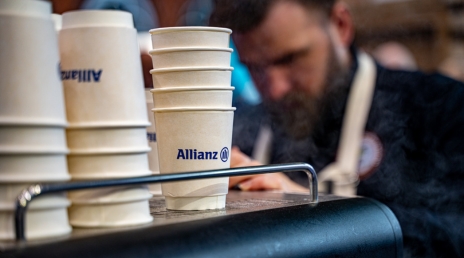It’s been widely publicised that organisations of many sizes and sectors have been affected by the Coronavirus (COVID-19) pandemic, with almost a quarter of UK businesses temporarily closing or pausing operations in 2020.¹
The UK Government responded with a number of employment and financial loan schemes, with the Coronavirus Job Retention Scheme (otherwise known as the ‘Furlough Scheme’) arguably the best known. As these schemes unwind, some concerns remain about the continued survival of many of these companies. This article looks at potential scenarios in the ’aftermath’ of COVID-19 and considers the role of the UK insurance industry in supporting businesses.
The impact of COVID on different sectors
While the pandemic has had far-reaching effects, it’s hit certain sectors harder than others. According to the Office for National Statistics (ONS), the transportation and storage industry reported the lowest percentage of businesses trading, at 82% compared to the cross-industry benchmark of 90%.² The hospitality and retail sectors were also severely impacted by the government restrictions. Consumer expenditure for restaurants and eating establishments significantly increased during the 2020 ‘Eat Out to Help Out’ scheme but as of May 2021 still remained at less than 70% of pre-pandemic levels.³
Many restaurants and pubs were swift to adapt their business models to fit the restrictions, offering delivery, take-away, or collection only services. However this introduced additional considerations, such as informing local authorities of changes to business activity, undertaking revised risk assessments and understanding regulatory responsibilities regarding selling food online.
The symbiotic relationship between the hospitality sector and its supply chains was also affected. Naturally the industry is heavily dependent on its supply chains and the pandemic exposed the fragility of some of these. Reasons for disruption included labour shortages, mainly due to workers being struck down with the virus, having to self-isolate, or being furloughed. According to HM Revenue and Customs (HMRC), 1,650,000 employees in the hospitality sector were on furlough in April 2020, representing 25% of all furloughed employees.⁴
On the flip-side the supply chains also suffered, as payments from businesses to suppliers and contractors fell, and at time of writing has still not fully recovered.
The retail sector also famously struggled during the pandemic as restrictions forced non-essential outlets to close and retail sales volumes fell by 1.9%.⁵ Some well-known stores announced large numbers of job cuts and in September it was reported that more than 8,700 UK chain stores had closed their doors permanently.⁶ However, some argue that this was already on course as part of the growing trend for online shopping. The exception was food retailing which actually experienced an increase in demand, attributed to headlines about shortages and panic buying.
Naturally, some industries were less affected by the pandemic; among these were technology companies, associated with a huge increase in numbers of people working from home; online streaming service providers (benefitting from the closure of cinemas and people spending more time at home during lockdown); and, perhaps unsurprisingly, the pharmaceutical industry.
COVID-19 and SMEs
A McKinsey survey revealed that almost a third (30%) of UK SMEs associate a significant reduction in revenue with COVID-19.⁷ Many SMEs relied on the Government rescue packages during the height of the pandemic but consequently are now required to repay the
loans borrowed during this period. However, it’s reported that two thirds of SMEs believe they won’t be able to repay these loans which could then ultimately impact upon taxpayers.⁸

The insurance industry's response
Recognising business challenges, some insurers agreed temporarily to adjust their product and underwriting appetite during the pandemic; examples of this included the provision of temporary cover enhancements and allowing greater flexibility with regard to changes to business activity.
Many insurers also created bespoke COVID-19 web pages, providing brokers and customers with useful information and links to help them navigate the situation. Naturally the subject of business interruption (BI) claims was put under intense scrutiny and resulted in some reputational damage to the industry. Going forwards, this will likely shape customers’ expectations towards insurance and the industry can respond by ensuring clarity of policy wordings and terms and conditions, and revisiting products and solutions to check they continue to offer true value for money in a post-COVID world. A 2020 McKinsey study⁹ revealed that the top factor for SMEs is ‘getting good value from insurance products’ but also that they are increasingly drawn towards lower priced products. Insurers and brokers therefore have an ongoing responsibility to explain the risks of underinsurance to their customers and ensure that they understand the full remit of cover beyond just the financial compensation.
Another survey also discovered that retail and small commercial buyers expect more comprehensive policies to account for future crises of a similar nature or scale – an intimidating gauntlet for the industry.
Summary
While the industry can’t be held to its plans for another ‘Black Swan’ event, there are a number of ways insurers and brokers can support customers as we (hopefully) emerge from the pandemic.
A key objective is to build back trust with customers, through timely and precise communication, and working closely with brokers to clearly explain what is and isn’t covered in a policy. This will help to avoid any expectation gaps or disappointment at the point of claim. It’s also important to outline any value-add services that are offered, such as risk management or access to specialists. This can be particularly useful for smaller companies which may not have their own resources. Brokers can also feed back to insurers on their products to allow them to make adaptations and improvements for the changing risk landscape.
Trust can also be built on efficient and transparent claims handling, often seen as the ‘moment of truth’ when insurers deliver on their promise.
Essentially, insurance needs to move away from the transactional, towards demonstrating the tangible benefits. Working together, brokers and insurers can best advise their customers on the suitability of coverage, helping with risk management, to reduce the risk of an event occurring in the first place.
1 Statista. Share of businesses that have closed in the UK due to Coronavirus in 2020, by sector. October 30, 2020.
2 ONS. Business insights and impact on the UK economy: 26 August 2021.
3 ONS. Coronavirus and its impact on UK hospitality: January 2020 to June 2021.
4 ibid.
5 In 2020 compared to 2019. ONS. Impact of the Coronavirus pandemic on retail sales in 2020.
6 BBC News. Almost 50 shops a day disappear from High Streets. 5 Sept 2021.
7 McKinsey & Company. COVID-19 and European small and medium-size enterprises: How they are weathering the storm. October 22 2020.
8 The i/ inews. Defaults on Covid business loans set to cost taxpayers tens of billions. 9 August 2021.
9 McKinsey & Company. Insurers must rethink the SME segment: Lessons from the United Kingdom.




























